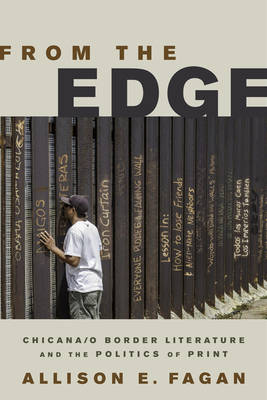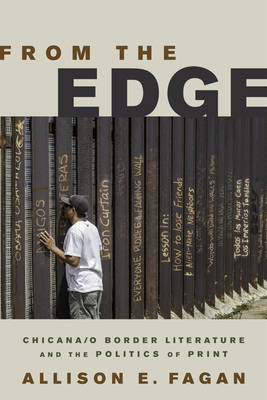
- Retrait gratuit dans votre magasin Club
- 7.000.000 titres dans notre catalogue
- Payer en toute sécurité
- Toujours un magasin près de chez vous
- Retrait gratuit dans votre magasin Club
- 7.000.0000 titres dans notre catalogue
- Payer en toute sécurité
- Toujours un magasin près de chez vous
61,45 €
+ 122 points
Format
Description
Chicana/o literature frequently depicts characters who exist in a vulnerable liminal space, living on the border between Mexican and American identities, and sometimes pushed to the edge by authorities who seek to restrict their freedom. As this groundbreaking new study reveals, the books themselves have occupied similarly precarious positions, as Chicana/o literature has struggled for economic viability and visibility on the margins of the American publishing industry, while Chicana/o writers have grappled with editorial practices that compromise their creative autonomy. From the Edge reveals the tangled textual histories behind some of the most cherished works in the Chicana/o literary canon, tracing the negotiations between authors, editors, and publishers that determined how these books appeared in print. Allison Fagan demonstrates how the texts surrounding the authors' words--from editorial prefaces to Spanish-language glossaries, from cover illustrations to reviewers' blurbs--have crucially shaped the reception of Chicana/o literature. To gain an even richer perspective on the politics of print, she ultimately explores one more border space, studying the marks and remarks that readers have left in the margins of these books. From the Edge vividly demonstrates that to comprehend fully the roles that ethnicity, language, class, and gender play within Chicana/o literature, we must understand the material conditions that governed the production, publication, and reception of these works. By teaching us how to read the borders of the text, it demonstrates how we might perceive and preserve the faint traces of those on the margins.
Spécifications
Parties prenantes
- Auteur(s) :
- Editeur:
Contenu
- Nombre de pages :
- 212
- Langue:
- Anglais
- Collection :
Caractéristiques
- EAN:
- 9780813583792
- Date de parution :
- 14-07-16
- Format:
- Livre broché
- Format numérique:
- Trade paperback (VS)
- Dimensions :
- 152 mm x 229 mm
- Poids :
- 281 g

Les avis
Nous publions uniquement les avis qui respectent les conditions requises. Consultez nos conditions pour les avis.






